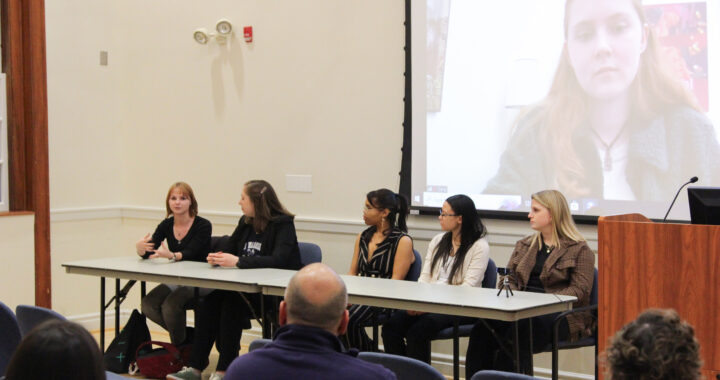Plans to Outsource Email Fail Despite Multiple Bids
2 min readBy Sam Chang and Brittany DeVries
Kate Schaeffer, executive coordinator for the Student Government Association, sent out a school-based group e-mail last semester, without ever logging onto the University of Mary Washington’s Eaglemail system.
Many students like Schaeffer that are frustrated with Eaglemail are now forwarding their school e-mail to other outsourced e-mail accounts like Gmail and Yahoo.
“I am frequently sending and receiving e-mails when planning student events and the UMW mailboxes have very little inbox space,” Schaeffer said. “I’ve often received notices that I’m approaching the storage limit.”
University officials were conscious that students favored outside e-mail providers over the current Novell Webmail system, and sought to make changes.
Chip German, chief information officer at UMW, explained the reasoning for such a bid.
“It just doesn’t make sense to me to operate a system that many students don’t use, preferring instead to forward their mail to something they like better,” German said.
On October 5 last semester, UMW issued a proposal for bids from alternative e-mail providers. After revising its initial bid request, UMW received proposals from Google, Dell, and CedarPark Computers.
Within the bid criteria, the student e-mail service was required to be at no cost to the institution.
Director of Purchasing K.C. McCullough said although a contract would entail an initial set up cost, the University did not want a monthly or service fee to maintain the system.
The proposal was cancelled October 19.
According to German, the bids were ultimately cancelled because of the rigorous criteria set by the school.
“Our original request for bids was too rigid and it reduced competition among the vendors rather than promoted it,” German said.
McCullough is responsible for assisting in the obtainment of services for the University.
Though the basic e-mail service would be free for the institution, German said that some of the bidders were asking from the school a “small investment,” which would pay for tools that ease the management of student accounts.
The University of Virginia is undergoing a similar change in their e-mail system, negotiating with outsourcing providers Google and Microsoft.
The University plans to wait until U.Va. finishes its negotiations before making any more decisions, hoping to perhaps imitate U.Va.’s process for switching e-mail providers.
“We have already begun to contact U.Va. to ensure that we understand the process that [they] followed,” German said. “If it is possible for us to ‘piggy-back’ on the process that U.Va. used to reach good results in a faster time-frame, we intend to do it.”
German explained that many other public higher education institutions in the area are watching UMW’s process, and may use a similar method if matters are resolved quickly.
According to the department of purchasing, the bid amounts form the first two requests cannot be disclosed until after a contract is awarded.











